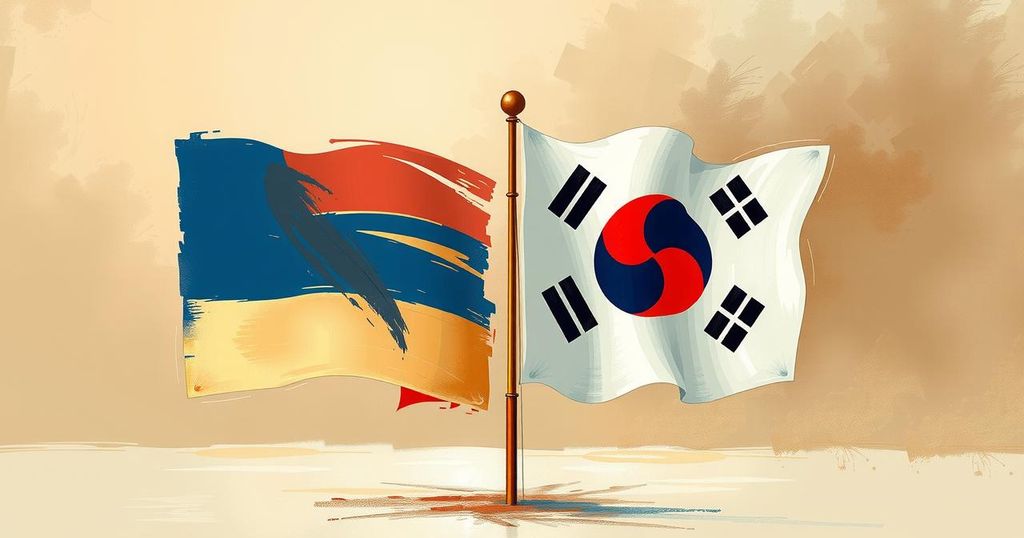Sergey Shoigu, a top Russian official, visited North Korea to meet Kim Jong Un after North Korea reportedly sent more troops to assist Russia in the Ukraine conflict. This visit highlights strengthening military ties, as North Korea supplies arms and troops to Russia. Concurrently, North Korea has performed missile tests amid heightened tensions following U.S. and South Korean military exercises, while President Trump expresses interest in resuming nuclear talks with Kim, who remains focused on support for Russia.
On Friday, a high-ranking Russian security official, Sergey Shoigu, visited North Korea to meet with leader Kim Jong Un. This visit comes after North Korea reportedly dispatched additional troops to Russia to aid in the ongoing conflict in Ukraine. Although the precise agenda for the discussions was not disclosed, reports confirm Shoigu’s attendance in Pyongyang, meeting top officials including Kim.
Shoigu’s presence follows a recent agreement between Ukraine and Russia for a limited ceasefire after discussions involving President Donald Trump. Meanwhile, North Korea has substantially supported Russia, supplying numerous conventional weapons and sending between 10,000 and 12,000 troops, with further troop deployments estimated at 1,000 to 3,000, as confirmed by intelligence from the U.S., South Korea, and Ukraine.
There are suspicions among South Korea and U.S. officials that North Korea is receiving military and economic support from Russia in exchange for its military assistance. Experts suggest North Korea will likely increase its support to maximize benefits from Russia as the war progresses.
Some analysts suggest that Shoigu’s visit may be linked to a potential visit by Kim to Moscow, following Russian President Vladimir Putin’s invitation to Kim during his visit to Pyongyang in June 2024. Shoigu, in his previous roles, has engaged with North Korea’s military and discussed expanding cooperation during past visits.
Concurrently, North Korean state media reported that Kim supervised the test-launches of new anti-aircraft missiles, which were characterized as a significant addition to North Korea’s defense systems. This missile testing coincided with the conclusion of the U.S. and South Korean military’s annual training exercises, which are typically viewed by North Korea as rehearsals for invasion.
North Korea’s Defense Ministry has criticized the recent U.S.-South Korean joint drills, accusing them of simulating attacks to eliminate North Korea’s nuclear capabilities. The ministry warned of severe consequences if such relative provocations are repeated. Meanwhile, South Korea urged North Korea to refrain from using its military testing as a pretext for further aggressive actions.
While President Trump has expressed willingness to re-engage with Kim regarding nuclear discussions, North Korea has yet to respond. Analysts believe that Kim will remain focused on supporting Russia in the conflict and may consider diplomatic overtures only after the situation evolves.
In conclusion, Sergey Shoigu’s visit to North Korea highlights the ongoing military cooperation between North Korea and Russia amid the Ukraine conflict. With North Korea supplying troops and arms to Russia, the geopolitical dynamics suggest a potential strengthening of their alliance, particularly as North Korea seeks to extract strategic benefits from the arrangement. Moreover, North Korea’s military activities and rhetoric coinciding with U.S.-South Korean exercises underscore the tense regional security environment. While President Trump indicates a desire for renewed dialogue, North Korea’s priorities appear primarily aligned with supporting Russia’s efforts in Ukraine.
Original Source: www.bostonglobe.com






